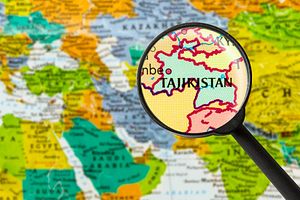The latest episode in the saga that is Tajik politics is a complex web of troubling accusations about terrorism, secret trials, unknown evidence, disturbing rumors about torture, and an extortive judicial system pitting disparate members of the same shrinking civil society pond against each other.
According to an open letter penned by representatives of Tajik civil society, two IRPT members–55-year-old Nozimdzhon Tashripov and 75-year-old Kurbon Mannonov (some sources say Mannonov is 73)–have died in prison in recent weeks. “On August 2, when relatives received Tashripov’s body, they noticed that his neck was broken and his chest showed visible signs of torture,” the letter says.
Hikmatullo Sayfullozoda, 66, who was sentenced to 16 years in June, is reportedly in poor health. Johann Bihr, the head of Reporters Without Borders’ Eastern Europe and Central Asia desk, said he “is in danger of dying and must be given appropriate medical treatment as a matter of urgency.” The organization released a notice about Sayfullozoda’s perilous position on August 11.
The IRPT’s former deputy chairman, Mahmadali Hayit, who was given a life sentence in June, was also rumored to be in bad shape. In a sudden decision, Hayit’s wife, Savriniso Juraeva, was allowed a brief visit on August 20, after which she said he had not been beaten. Two days later, BBC’s Russian service reported that, according to family members, Juraeva and her 17-year-old son were kidnapped from their home.
The two were detained but have since been released after harsh questioning by prosecutors, according to one source who spoke to The Diplomat. It’s possible they were released after agreeing to speak against Jamshed Yorov, one of the last prominent Tajik lawyers left practicing and brother of Buzurgmehr Yorov. Buzurgmehr, also a noted lawyer, had been defending some of the IRPT leaders last year when he was arrested on fraud charges. Jamshed was arrested the day after Juraeva and her son were released.
In recent weeks, the verdict from the trial that sent the IRPT leaders to prison leaked on opposition websites. The trial has been called a kangaroo court–there were no observers and the proceedings have been kept secret.
It appears that the Tajik authorities are trying to pin the leak on Jamshed. Reuters reported today that Jamshed was arrested by Tajik police and charged with leaking classified information. Yorov, Tajik authorities claim, published “the full text of the verdict against the leaders of the opposition Islamic Renaissance Party (IRPT).”
A reasonable person may ask why the verdict and the evidence presented–in what Steve Swerdlow, a Central Asia researcher with Human Rights Watch, says is perhaps the most important trial in modern Tajik political history–is not a public document. If the Tajik government has the evidence it says it does–that the IRPT leaders conspired with former Deputy Defense Minister Abduhalim Nazarzoda to overthrow the government–it just may be in the public interest.
But Tajikistan leans heavily on accusations of terrorism. The world over, trials related to terrorism are often shrouded in secrecy, nominally in the interests of national security.
Swerdlow told The Diplomat that the international community should “not allow the label of extremism to obscure what’s really going on: a full scale assault on civil society.”
“Persecution,” he said, “in Tajikistan is a family affair.”
According to Swerdlow, Khosiyat Yorova, the sister of Jamshed and Buzurgmehr, has also been taken in for questioning.
Tajikistan today is a long way from the time it was hailed for its nascent political pluralism and seen as a model in how to construct a political compromise following a civil war. The government seems bent on destroying the IRPT and with that in mind has taken aim at lawyers and family. Lawyers are sometimes are made to sign gag orders preventing them from speaking publicly about their cases–therefore trapping them in legal troubles when they do and preventing them from doing their jobs.
In May, during Tajikistan’s turn on the block for the UN universal periodic review process (UPR)–the mechanism by which all UN member countries have their human rights records assessed every few years–Dushanbe said it was “committed to taking measures to fight extremism and terrorism in strict compliance with international law and legislation on human rights.” A number of countries offered protest to Tajikistan’s self-assessment, honing in on Dushanbe’s treatment of political opposition–the IRPT and Group 24, most especially–as well as media crackdowns, persecution of lawyers, and use of torture.
The United States has been meek in commenting. The U.S. embassy in Dushanbe offered a short comment in response to the June convictions: “We have urged the Government of Tajikistan to conduct trials in a fair and transparent manner, as well as to protect the rights of the accused throughout the process in a manner consistent with Tajikistan’s international obligations under the International Covenant on Civil and Political Rights.” Similar language was sent via email to EurasiaNet regarding Sayfullozoda, noting concern about torture of prisoners. The response seems a far way off from a February 2011 press release in which the U.S. embassy, “strongly condemns” the then-recent “unprovoked attack” on Sayfullozoda. Sayfullozoda had been assaulted two days before by three men while walking home.
The most recent press release from the U.S. embassy as of publishing notes a $12 million equipment gift to the Tajik border service. Nothing on the recent deaths of political prisoners, the arrests of lawyers, or the detention and harsh questioning of family members.

































